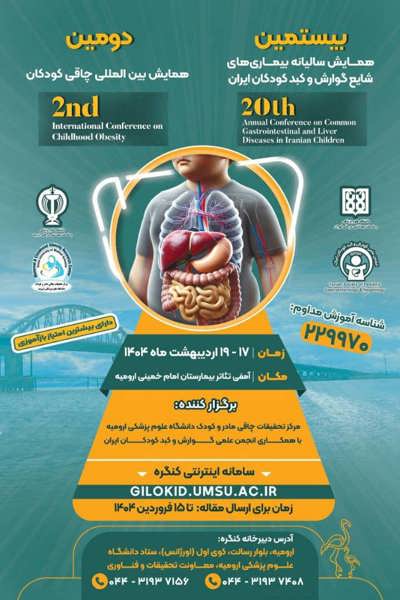0% Complete

صفحه اصلی
/
بیستمین همایش سالیانه بیماری های شایع گوارش و کبد کودکان ایران و دومین همایش بین المللی چاقی کودکان
نویسندگان :
کلمات کلیدی :
چکیده :
لیست مقالات بایگانی شده
Elahe Karimipour - Haniye Karimipour
Parvin Babaei - Narges Salavati - Elham Mohammadi
Sahel Sharifpoor Saleh - Elahe Gozali - Bita Almasi
Nazanin Mozaffari - Mohsen Maleki
Sadra Khodaei Alamdari - Sajjad Moradi - Aylin Ebrahimpour
Fatemeh Pourmohammad - Masoumeh Akbarbegloo - Ali Rahimlou
Vali Musazadeh - Amir Hossein Faghfouri - Farzad Shidfar
Golnaz Khodayari - Nastaran Vakilbashi - Kiyanoush Jafari - Faezeh Ghalichi
Faezeh Mahd Gharebagh - Sadegh Feizollahzadeh

